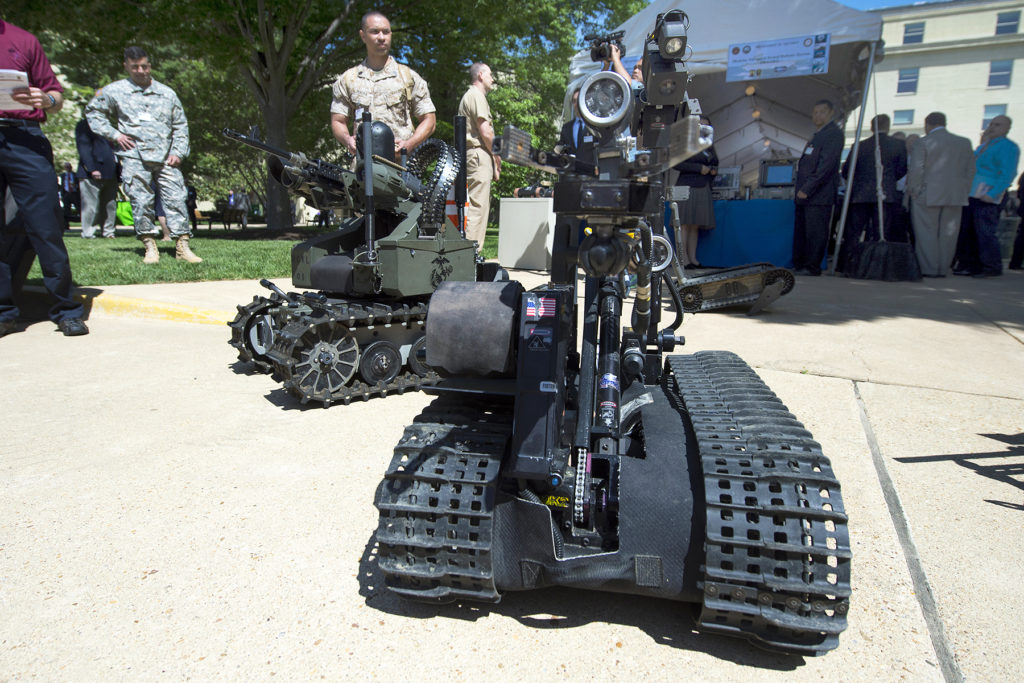
Robots take on jobs that humans aren’t suited to, working in environments where human beings can’t thrive. Hot heavy, and hazardous, in other words. 90% of the time that’s something like a washdown environment in a factory, but there’s a context that’s coming up more often in discussions about robots: the battlefield.
Robots at war
“The most decisive factor on the battlefield of the future,” suggests The Economist, “may be the quality of each side’s algorithms.”
Warfare is certainly something we’d rather have machines do than humans. Each advance in weapons technology takes the danger further away from human beings — guns, cannons, missiles, and so on. Homing missiles and missile defense systems already use elements of automation to operate. The Sea Hunter, an autonomous oceangoing vessel that can function without a human crew, is already in use.
Drones, swarming robots, and undersea automatons could be the next wave of defense technology.
But not everyone sees this as a good thing.
100 robotics experts sent a letter to the UN last year, warning that increasing autonomy could lead to serious problems as weapons grow smarter. Weapons can already make “decisions” about their movements based on information from sensors. Without human direction, could they make decisions leading to friendly fire or harm to civilians?
It’s all about autonomy
The subject is more somber than industrial automation, but the questions are much the same:
- Who makes the decisions?
- Who’s in control?
- Can we trust them?
Industrial robots have occasionally been part of factory accidents. As they gain more autonomy, news stories on these incidents have changed, describing how a robot “went rogue and killed” a human rather than just an industrial accident. The number of people saved from harm by industrial robots is much larger than the number who have been harmed, but increasing autonomy has led to increasingly emotional language about industrial accidents.
The difference between the factory floor and the battlefield, obviously, is that military robots will be specifically programmed to do people harm. Industrial robots are programmed to assemble paper cups or install hitch assemblies.
Rexroth’s focus is on safety. We’re experts on Rexroth electric industrial motion control. When you need service or support, we should be your first call.
